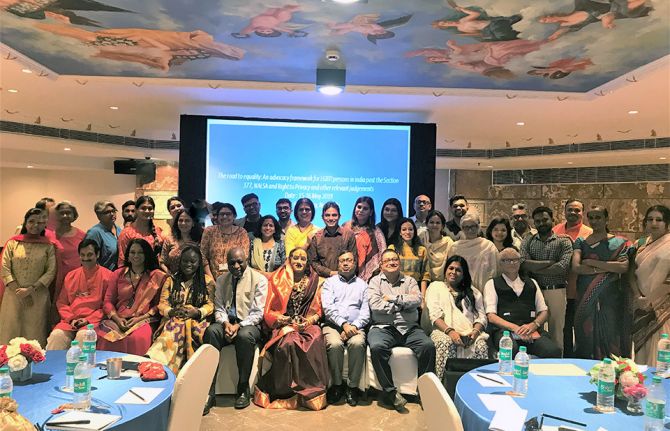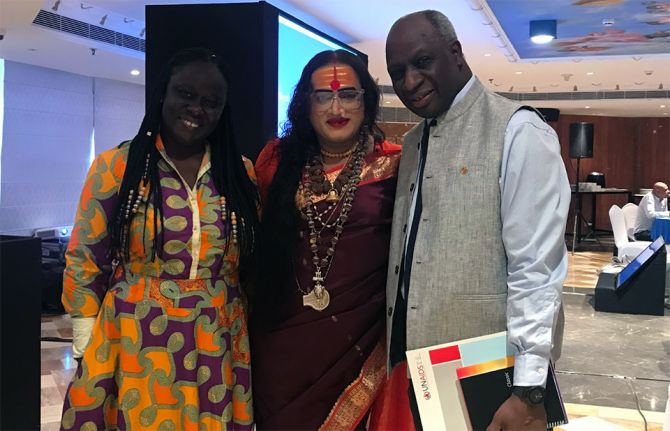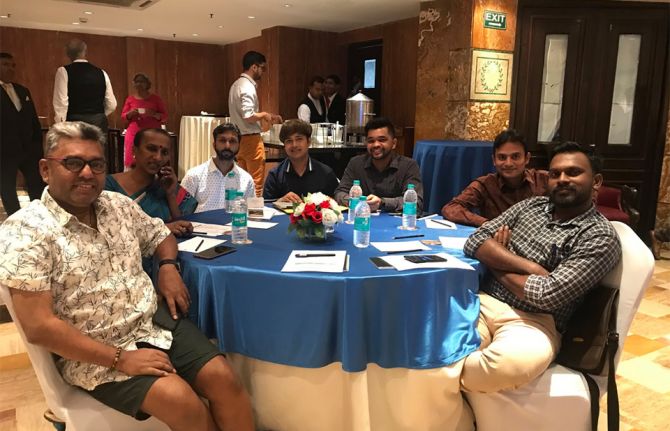



Feature Story
The road to equality for LGBTI people in India
24 May 2019
24 May 2019 24 May 2019“The job has just begun. We have come a long way, but we still have a lot to do.” That was the message from Ajit Prakash Shah, who delivered the Delhi High Court judgement in 2009 that led the way to the eventual annulling in 2018 of Section 377 of the Indian Penal Code, which criminalized same-sex sexual relations.
The retired Chief Justice of Delhi High Court was speaking at a meeting hosted by UNAIDS and partners in New Delhi, India, on 15 and 16 May on the rights of lesbian, gay, bisexual, transgender and intersex (LGBTI) people in India.
“Our aim is to mobilize and organize the community so they can together help each other,” said Bilali Camara, UNAIDS Country Director for India.
The speakers noted that despite recent legal judgements―including the annulling of Section 377 and the decision by the Supreme Court of India in 2014 on the rights of transgender people―the situation for LGBTI people in India had not changed drastically. However, it was noted that there is a perception that there is an increasing understanding of the issues of transgender people among the general public.
“The reason for the spike in crimes against lesbian, gay, bisexual, transgender and intersex people is partly due to a lot of cases now being reported, while earlier they were not being reported. The National AIDS Control Organisation has worked with communities that at one time in history fell onto the other side of the law. It has built models that have worked and are being replicated around India,” said Shree Alok Saxena, the Joint Secretary of the National AIDS Control Organisation.
Marietou Satin, Deputy Director of USAID, India, said, “Excluding any section of society is not only a moral evil, but it also impacts a country as a whole. You are denying a large population from being productive members of society. By including them, you are also investing in your economy. They have a right to contribute. For that, people need access to jobs and safety in the workplace.”
The meeting also saw the establishment of an LGBTI taskforce to provide strategic advice to UNAIDS and the United Nations Development Programme in India on current and emerging LGBTI issues in India, and on policy, programmes and services to address those issues.
The participants noted the need end discrimination, sensitize political leaders and policy-makers and ensure that the LGBTI community has access to all services, including health and education, and employment.



